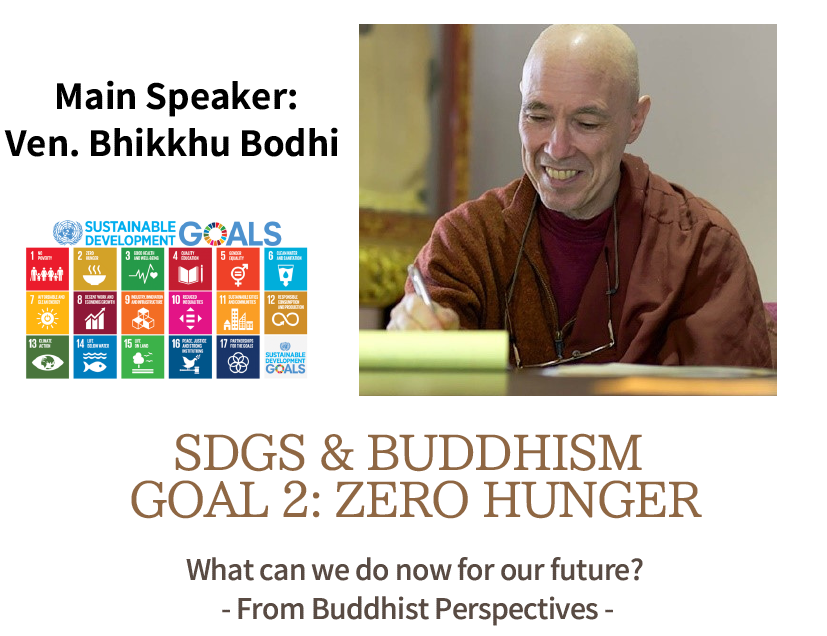
By Rev. Ken Yamada
Buddhist leaders tackled world hunger in an online forum last week, the second of the United Nations Sustainable Development Goals (SDGs), under the theme, “Zero Hunger: What can we do now for our future? Buddhist Perspectives.”
The forum was hosted by the Bay Area Buddhist Association, an alliance of Buddhist organizations representing Soto Zen, Jodo Shinshu, and Nichiren Buddhism. The group hopes Buddhist leaders and laypeople of all stripes join them in addressing great challenges facing the world today, including education, hunger, climate change, clean water, affordable energy and other pressing problems. The association, which was founded last year, took the mantle declared at a 2018 world Buddhist conference in Japan supporting the UN’s goals. This forum was the third held since December 2020. A June forum addressed the challenge of world poverty.
Feeding the hungry is an urgent challenge that needs to be addressed, but the long-term answer lies in understanding the larger problem. Experts say there’s enough food produced to feed the world’s population, but that food supply is distributed unevenly, and in some places, not at all.
Keynote speaker Venerable Bhikkhu Bodhi stressed how tens of millions of people in the world are increasingly susceptible to hunger because of climate change, political upheaval, migration, violence, and poverty. “Poverty is the most potent cause of hunger,” he said. “When people are poor, they can’t purchase the food they need.”
Poverty sets into motion a vicious cycle of unemployment, hunger, and early death. It hurts women, migrant workers, refugees, and the urban poor, he said. Ven. Bodhi, a teacher at Chuang Yen Monastery in upstate New York, founded Buddhist Global Relief, a nonprofit supporting hunger and poverty relief for poor communities around the world.
Industrial agriculture and big business have driven away many small scale and independent farmers, while also contaminating soil through the overuse of insecticides and chemicals and over production. One long-term solution is to promote education and training, as well as provide tools and machinery to farmers, who in many parts of the world, consist of many women.
Abbot Konjin Godwin of the Houston Zen Center highlighted the problem of “hidden hunger,” which affects people who lack proper food and necessary nutrition. “We need to shine a light for this particular kind of hunger so it can be eliminated,” she said. In some cases, these people consume worthless calories that lead to health problems such as diabetes and obesity. They often lack basic nutrients such as vitamin A, iodine and zinc. “Basically without choice, obesity results,” she said. Obesity is poised to surpass smoking as the number one modifiable risk factor in health.
A participant created a poster showing different ways to take personal action in the fight against hunger, which she invited people to post in their homes.

Bishop Eric Matsumoto of Honpa Hongwanji in Hawaii talked about the Buddhist view of interdependence and our personal relationship to food. “We must address the causes and conditions,” he said. Even bringing containers with you to restaurants to take home uneaten food is helpful. Bishop Matsumoto said his temple donates to a local farm to promote organic farming. He also told a parable in which the difference between starving people in hell and people in the land of bliss, in which both had food, was that people helped feed each other in the land of bliss.
Bishop Noriaki Ito of Higashi Honganji in Los Angeles added, “Humans create their own problems.”
“The assumption is that individuals should solve this problem,” said Abbot Goodwin, “but the answer is collective action.”
Bay Area Buddhist Association may be contacted at sdgsbayarea@gmail.com
-Rev. Yamada is editor at Shinshu Center of America

